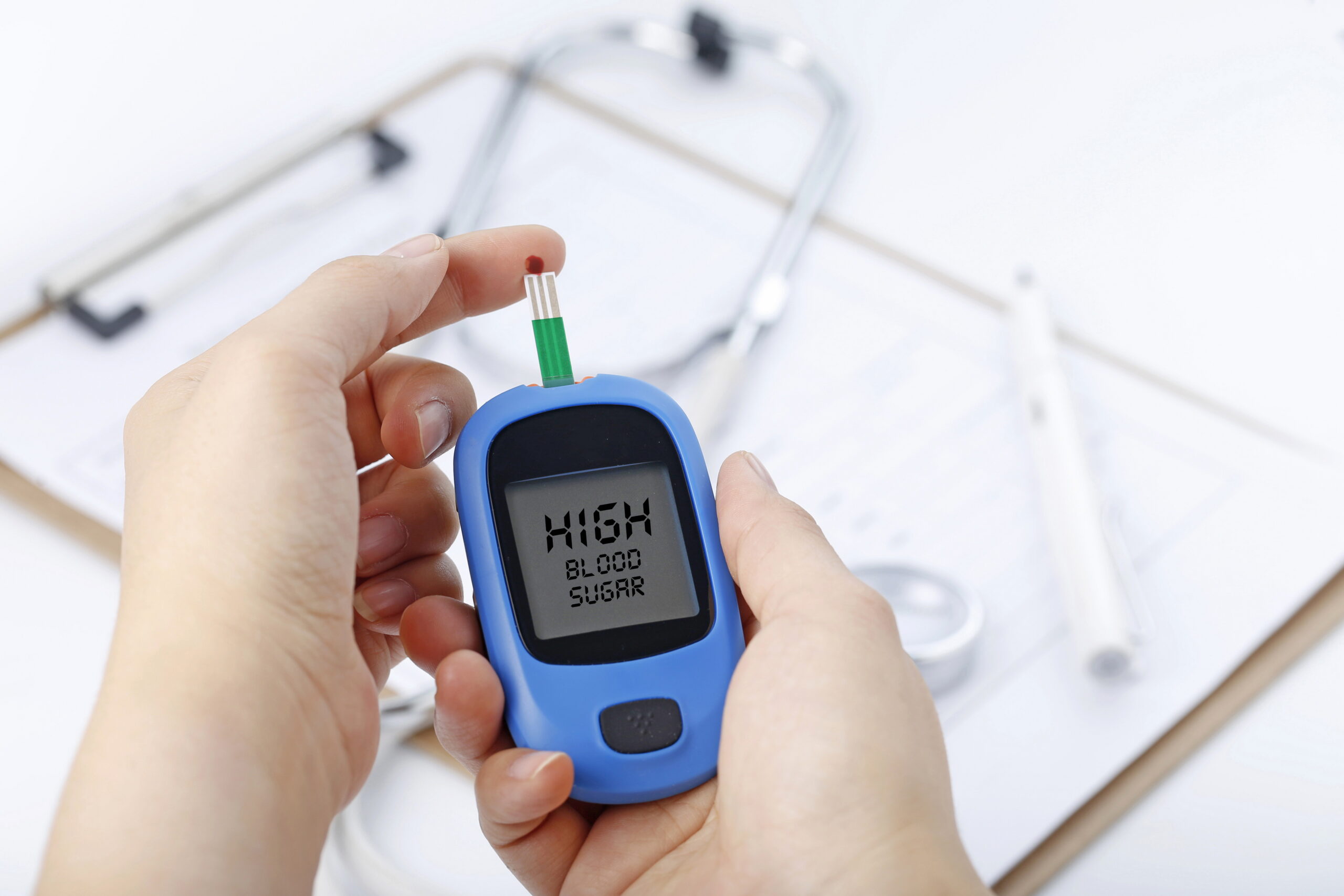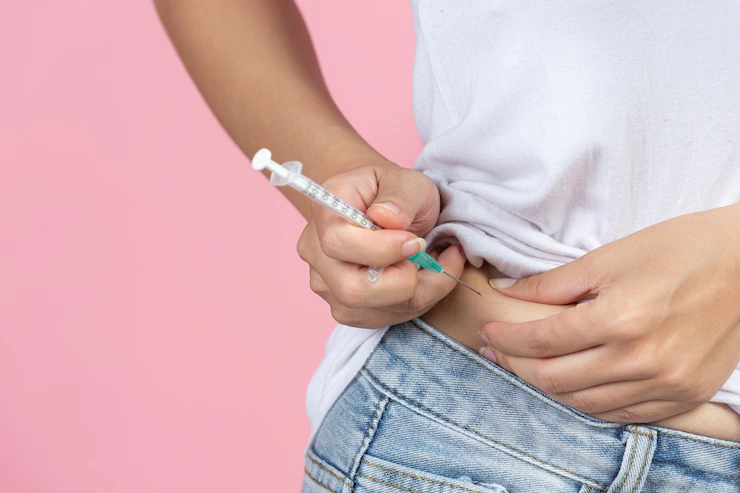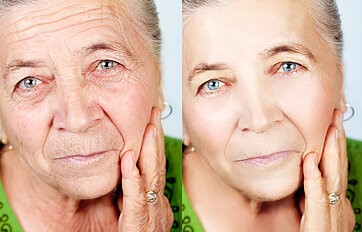Diabetes: Know about the early signs and symptoms

Most early symptoms and signs of diabetes are caused by levels of sugar in your blood.
We advise getting your blood sugar tested if you experience any of the following symptoms:
- Sometimes people pee more often and feel thirstier.
- Unplanned Lose of weight
- hunger and fatigue
- blurry vision
- if your hands or feet often feel numb or tingle.
- dryness and sores
- Have more colds and allergies than usual
Table of contents
Types 1 Diabetes
Type 1 diabetes is a lifelong condition where the pancreas can’t produce insulin. This doesn’t mean there’s no hope, and with regular blood tests, it can be managed safely. Insulin is a hormone the body uses to allow sugar (glucose) to enter cells and produce energy.
Early Signs of Type 1 Diabetes
People with type 1 diabetes are often inflicted with vomiting, nausea, and stomach pains. With symptoms that develop quickly and can be severe, type 1 diabetes usually starts when you´re a child, a teenager, or an adult.
Unexpected weight loss.
If your body can’t get energy from the food you’re eating, it will start burning muscle and fat to make up for that, which over time leads to an even lower calorie intake.
Nausea
When the body burns fat, it makes ketones. These can build up to dangerous levels and cause Diabetic Ketoacidosis, an illness that can lead to life-threatening complications. Ketones can also make you feel sick to your stomach.
Type 2 Diabetes
Type 2 diabetes is caused by the body not being able to use blood sugar as fuel by regulating how much it produces. This results in blood sugar levels getting too high and can happen over a long period.

Early Signs of Type 2 Diabetes
It can take years for Type 2 diabetes to show signs and symptoms which could go unnoticed or create a false sense of security. The longer you wait, the more severe your diabetes will become. Since Type 2 typically starts in adulthood many people don’t know they even have it yet. It can be hard to recognize signs of type 2 diabetes, so make sure you know the risk factors first.
See your doctor if you have this condition or any of these factors:
obesity, having a parent or sibling who has type 2 diabetes, hypertension (high blood pressure) as indicated by a systolic number at least 130 mm Hg.
Hunger and fatigue.
Your body turn food into glucose that cells in your body need for energy. However, insulin is needed to take in glucose from your bloodstream.
If your body doesn’t make enough insulin, or if your cells don’t accept the insulin that your body makes, the glucose can’t get into them and you have no energy. Therefore, the food may be triggering an urge to eat more and expend less energy, which will in turn make you feel hungrier and more tired.
Increased urination
One of the most common early signs of diabetes is the increase in urination which can lead to people having to use their bathroom more than usual. This happens because when diabetes strikes, your kidneys may not be able to reabsorb all the glucose in your bloodstream.
This means the body will have to create more urine, which will remove fluids from the body. The effect: You will have to go more often But more frequent trips to the washroom might not be a bad thing because it may lead to you losing more fluids and things like salt and potassium, which will help your muscles.
If you drank water instead of pop, you’re also going to pee a lot more. Dry mouth and itchy skin are common in cases of dehydration. With less fluid for making pee, there will be less moisture to sustain moist, supple skin.
Blurred vision
Changing fluid levels in your body could make the lenses in your eyes swell up, which changes their shape of them and they cannot properly focus.
Gestational Diabetes
Gestational diabetes is not classified as Type 2 or Type 1 diabetes, but it’s closely related to both. Diabetes can come in many different shapes and sizes, but gestational diabetes is rare.

It affects how cells use sugar, making it tricky to regulate blood sugar levels. Also, gestational diabetes causes high blood sugar that can affect you and your baby.
Early Signs of Gestational Diabetes
Gestation diabetes is usually without any signs & symptoms and those who are pregnant should undergo tests for it between 24-28 weeks. If needed, you can follow certain measures to protect your health.
Takeaway
People over the age of 45 or with other risk factors for diabetes should consider fasting to detect the disease. When detected early, it is possible to prevent nerve damage and a heart attack.
Products That We Suggest for you
GLUCONITE – BLOOD SUGAR & SLEEP SUPPORT
Gluconite is the only solution on the planet that helps you sleep deeply while maintaining a healthy blood sugar level. According to scientific studies, your nighttime metabolism and sleep quality are crucial to your overall health.
To know more and purchase, Click Here
GlucoTrust – Blood Sugar Support
Through the utilization of wonderful nutrients, GlucoTrust promotes healthy blood sugar (glucose) levels. This mixture may also help you sleep better and longer, as well as lower hunger cravings, making it simpler to lose weight without having to keep to a bland diet.
To know more and purchase, Click Here








Comment to this Article
Comments that encourage respectful conversation are welcomed at AGP Health n Beauty. Stay on subject, please. Comments that are aggressively promotional of goods or services or that include personal attacks, vulgar language, or other forms of abuse will be deleted. Which remarks break our comment policy will be decided at our discretion. (Anonymous comments are accepted; just leave out your name in the comment box. Although necessary, your email address won't be posted with your comment.)